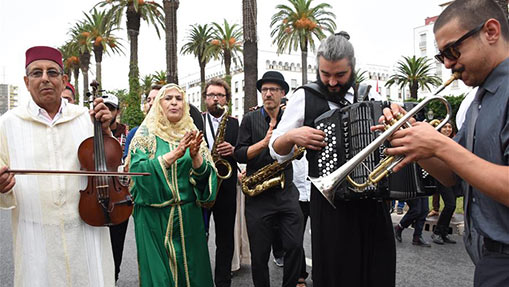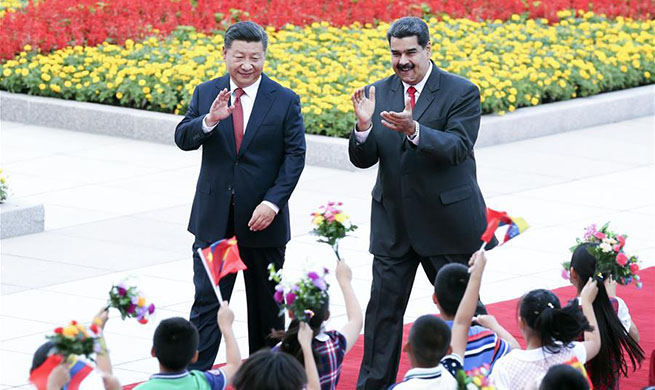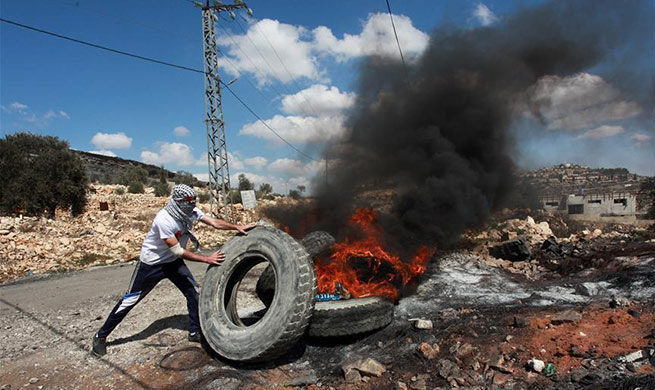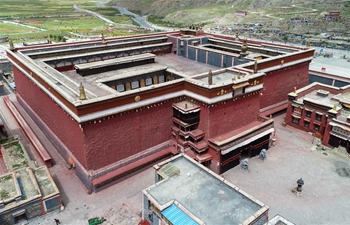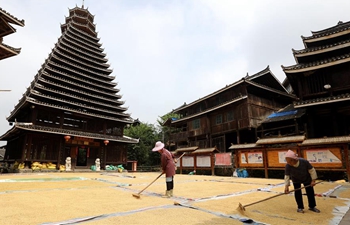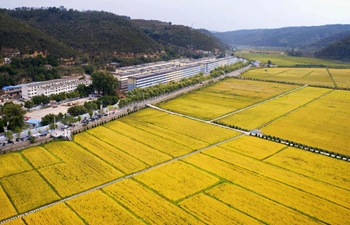ADEN, Yemen, Sept. 14 (Xinhua) -- The Yemeni government forces backed by the Saudi Arabia-led coalition seek to tighten the noose on the Iranian-backed Houthis in the Red Sea coast city of Hodeidah after making significant advancement in the ongoing fighting.
Army units of pro-government Giants Brigades have taken control of several areas and expelled the Houthis following days of ferocious fighting.
On Wednesday, the Yemeni government troops succeeded in cutting off the "Kilo16 road," the only supply route linking Houthi-controlled areas in northern provinces with the port city of Hodeidah, which will pose a huge blow to the group.
Yemeni observers believe that the Saudi-led coalition and its local allies will continue to conduct clean-up operations and pursue fleeing Houthi militants, but they won't storm densely populated areas.
"Cutting off supply routes for Houthis in Hodeidah is considered as a wise plan that will force Houthis to surrender easily without causing harms for citizens," said Hussein Hanshy, head of Aden's Aden's Research and Strategic Studies center.
He added that "the Houthi militiamen are well-prepared for such street fighting that won't end easily, but the government forces have different plans that will lay a siege on Houthi-controlled areas with fewer losses."
Saleh Abu Odal, a political activist and observer, said that cutting off supply lines by government forces means that the Iranian-backed Houthi group is nearing the end of its control over one of the country's strategic ports.
He pointed out that "Houthis will face a very serious obstacle in the next days and can't continue longer in fighting well-trained army soldiers backed by modern armored vehicles because of lack of severe fighters."
Abdul-Raqeeb Hidyani, a political analyst and writer, said that the Yemeni warring rivals in Hodeidah must pay attention to the humanitarian situation and start in providing shelters and securing safe roads for families willing to flee war-torn areas in Hodeidah as soon as possible.
Hodiedah houses a number of industrial zones where thousands of local workers are working to gain livelihoods.
Humanitarian officer Khaled Walidy, who works for a local organization, told Xinhua that "the humanitarian losses will be much higher than the political achievements of the military operations in Hodeidah."
"Even those families who managed fleeing the ongoing fighting in Hodeidah faced very difficult living conditions elsewhere without enough support from local and international organizations," Khaled said.
He added that "we noticed that some of the displaced families suffered from miserable living conditions in other places and finally decided to come back to live in Hodeidah despite the raging fighting there."
The Yemeni government seeks to expel the Houthi rebels out of the strategic port city of Hodeidah militarily despite warnings issued by international humanitarian agencies.
On the other side, the Iranian-backed Houthis have established many underground trenches and vowed to defend the city of Hodeidah in order to remain in control over its key port along the Red Sea.
On June 13, the Arab coalition, backing internationally-recognized government of Yemen's President Abd-Rabbu Mansour Hadi, declared a major assault to recapture Hodeidah and the Yemeni western Red Sea coast from the Houthis.
Yemen's government and Saudi Arabia have repeatedly accused the Houthi rebels of using Hodeidah's port to smuggle Iranian weapons. Both Houthis and Iran denied the accusation.
Hodeidah is the single most important point of entry for food and basic supplies to Yemen's northern provinces controlled by Houthis, including the capital Sanaa.
The Arab coalition intervened in Yemen's conflict in March 2015 to roll back Iran-allied Shiite Houthi rebels and reinstate Hadi.









